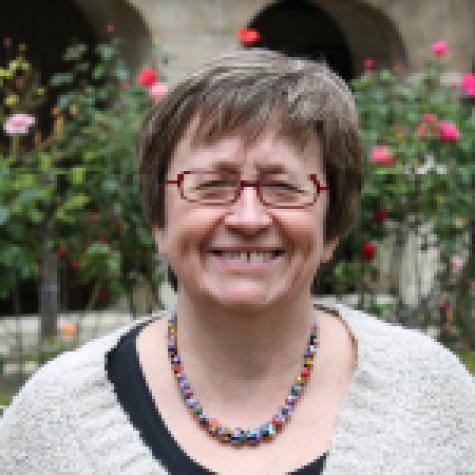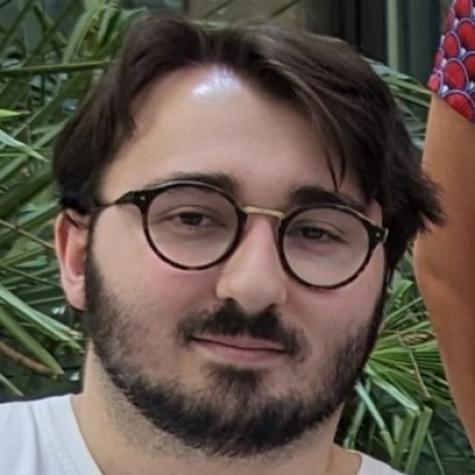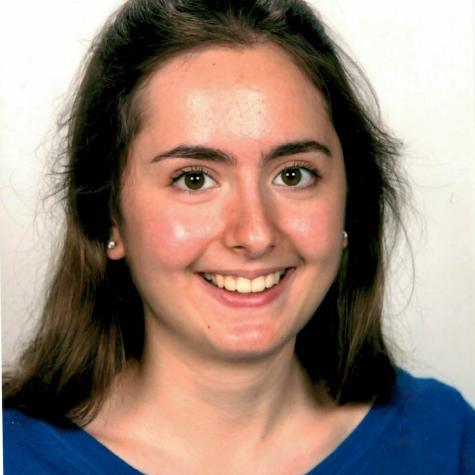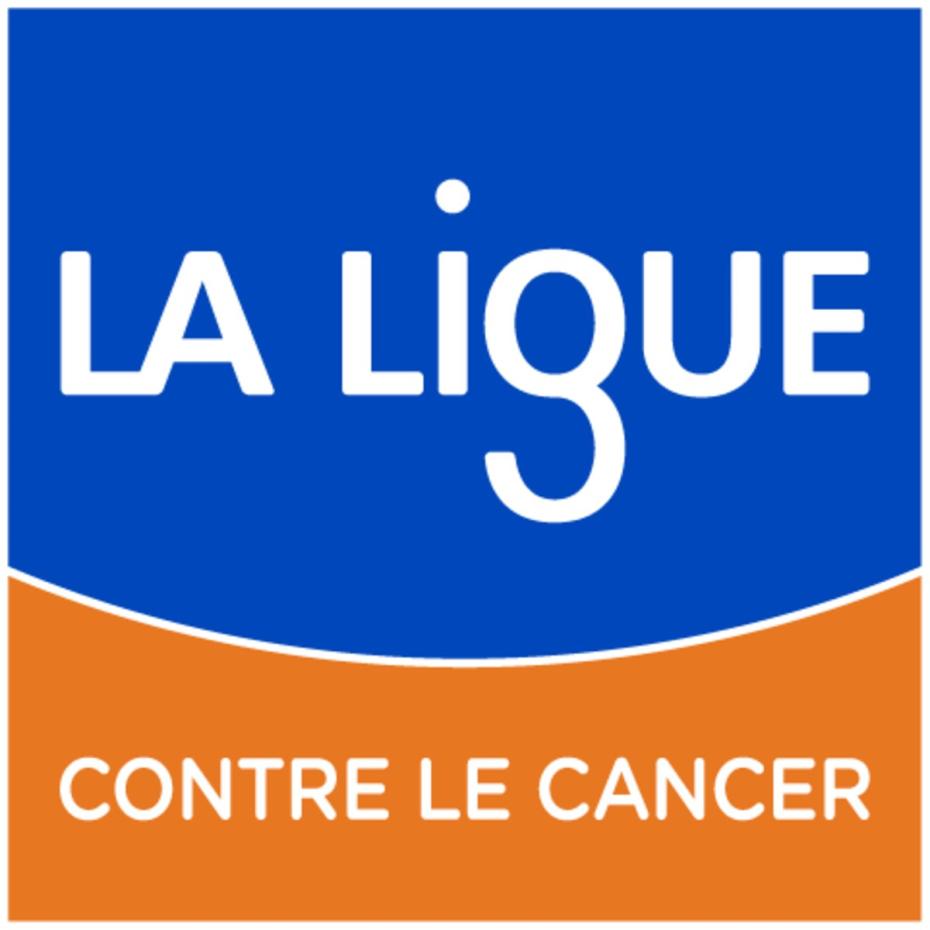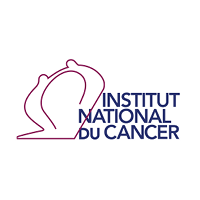
Photo du Groupe Janvier 2025

Le mélanome cutané pose un problème de santé publique avec 15 500 nouveaux cas par an en France et une très forte capacité à métastaser. Il est considéré comme l'une des tumeurs solides les plus immunogènes. Ainsi, la présence de lymphocytes T CD8+ infiltrant les tumeurs corrèle avec un bon pronostic. Récemment, les anticorps ciblant les récepteurs inhibiteurs CTLA-4 et PD1, visant à restaurer la fonction de lymphocytes T anti-tumoraux « affaiblis », ont révolutionné le traitement du mélanome cutané métastatique. Cependant, les résultats en termes de survie globale et de réponse sont très variables d’où la nécessité d’approfondir notre connaissance des mécanismes d’échappement immunitaire et d’en identifier de nouveaux acteurs, cibles potentielles de thérapies adjuvantes.
Les enzymes impliquées dans le catabolisme d’acides aminés représentent des cibles privilégiées pour le traitement du cancer. En particulier, l’équipe a démontré le rôle pro-tumoral de la synthétase de l’oxyde nitrique inductible (iNOS) et de l’IL-4 Induced gene 1 (IL4I1) dans le mélanome, renforçant le rationnel de cibler ces enzymes dans des stratégies thérapeutiques combinatoires (Douguet. 2016 et 2018, Bod. 2017, Ramspott. 2018, Prévost-Blondel. 2019). Nous analysons comment ces enzymes impactent la réponse immunitaire lors des phases précoce et tardive du développement tumoral dans des modèles de mélanome spontané métastatique (souris transgéniques pour l’oncogène RET dont les gènes iNOS ou IL4I1 sont sauvages ou inactivés). En collaboration avec des cliniciens des hôpitaux Cochin Avicenne et Curie, nous déterminons si l’IL4I1 constitue un marqueur pronostique de la maladie et de résistance aux immunothérapies chez les patients atteints de mélanome (ClinicalTrials.gov Identifier: NCT04253080).
En conclusion, le travail de notre groupe est fondamental pour comprendre la complexité des relations entre la cellule tumorale et son micro-environnement, et développer de nouvelles thérapies destinées aux patients atteints de cancer.
Membres du groupe
Financements
Contact
Actualités
Arrivée de Saniya pour un Post-doctorat oct 2024-oct 2027
Bienvenue à Saniya Kari, qui après un stage de Master 2 dans l'équipe en 2019, revient à partir d'Octobre 2024 pour un post-doctorat de 3 ans financé par la Fondation de France.
Son projet vise à évaluer la contribution de l'IL4I1 dans la résistance au traitement par immunothérapiae chez les patients atteints de mélanome cutané.
Nous en profitons pour remercier les patients qui ont accepté de participer à cette étude translationnelle.
Félicitations à Anna Llebaria-Fabrias, ...
lauréate du prix du jury pour la présentation de son projet de thèse portant sur le Microbiote associé au Mélanome lors des journées des doctorants de l'Institut Cochin en 2024.

Présentation de Malvina au Congrès européen d'Immunologie, Dublin 2024
Mavina Seradj a reçu les soutiens de l'Institut Hors murs en Immunologie de l'Université Paris Cité et de l'European Congress of Immunology pour présenter ses travaux de thèse portant sur l'impact de l'IL4I1 sur la fonction des macrophages associés au mélanome à Dublin en septembre 2024.

Félicitations à Malvina Seradj et Anna Llebari-Fabrias qui ont reçu un financement de la Fondation ARC pour la Recherche sur le Cancer en 2023 et en 2024 respectivement.
Un immense merci à la Fondation ARC pour ses soutiens. Cela a permis à Malvina de finaliser son projet de thèse portant sur l'impact de l'IL4I1 sur la fonction des macrophages associés au mélanome et à Anna de poursuivre son projet sur le microbiote associé au mélanome.

Félicitations à Anna Llebaria-Fabrias, lauréate de la Fondation SILAB-Jean-PAUFIQUE 2022 pour son projet de thèse portant sur le Microbiote associé au Mélanome.
Un immense merci à la Fondation qui soutient à nouveau une doctorante de notre équipe.

Principaux articles de l'équipe
IL4I1
Bekkat F, Seradj M, Lengagne R, Chew S, Kato M, Lucas B, Castellano F, Molinier-Frenkel V, Richard Y, A Prévost-Blondel. Up-regulation of IL4-induced gene 1 enzyme by B2 cells during melanoma progression impairs their anti-tumor properties. Eur J Immunol. 2024. DOI: 10.1002/eji.202350615 Internal Article ID: 17915114 Article ID: EJI5680
Castellano F, Prévost-Blondel A, Cohen JL, Molinier-Frenkel V. What role for AHR activation in IL4I1-mediated immunosuppression ? Oncoimmunol. Vol.10(1), e1924500. 2021. PMID: 34026337
Puiffe ML, Dupont A, Sako N, Gatineau J, Cohen J, Mestivier D, Le Bon A, Prévost-Blondel A, Castellano F and Molinier-Frenkel V. IL4I1 accelerates the expansion of effector CD8+ T cells at the expense of memory precursors by increasing the threshold of T cell activation. Front. Immunol. 11:600012. 2020. PMID: 33343572
Molinier-Frenkel V, Prévost-Blondel A, Castellano F. The IL4I1 Enzyme: A New Player in the immunosuppressive tumor microenvironment. Cells. 20;8(7):757. 2019. PMID: 31330829
Prévost-Blondel A, Richard Y. IL4-induced gene 1 as an emerging regulator of B-cell biology and its role in cutaneous melanoma? Crit Rev Immunol. 39(1):39-57. 2019. PMID: 31679193
Ramspott JP, Bekkat F, Bod L, Maryline Favier M, Terris B, Salomon A, Djerroudi L, Zaenker KS, Richard Y, Molinier-Frenkel V, Castellano F, Avril M-F and Prévost-Blondel A. Emerging role of IL-4 induced gene 1 as a prognostic biomarker affecting the local T cell response in human cutaneous melanoma. J Invest Dermatol 138(12):2625-2634. 2018. PMID: 30048651
Bod L, Douguet L, Auffray, C, Lengagne R, Bekkat F, Rondeau E, Molinier-Frenkel V, Castellano F, Richard Y and Prévost-Blondel A. IL4-induced gene 1 : a negative immune checkpoint controlling B cell differentiation and activation. J Immunol. 200(3):1027-1038. 2018. PMID: 29288206
Bod L, Lengagne R, Wroebel L, Ramspott JP, Kato M, Castellano F, Avril MF, Molinier-Frenkel V, and Prévost-Blondel A. IL4-induced gene 1 promotes tumor growth and modulates the tumor microenvironment in a spontaneous model of melanoma. Oncoimmunol. 6(3):e1278331. 2017. PMID: 28405502
Lasoudris F, Cousin C, Prévost-Blondel A, Martin-Garcia N, Abd-Alsamad I, Ortonne N, Farcet JP, Castellano F, V Molinier-Frenkel. Inhibition of antitumor T-cell response and immune escape in mice associated with IL4I1 expression. Eur. J. Immunol. 41:1629-38. 2011. PMID: 21469114
NOS2
Douguet L, Bod L, Labarthe L, Lengagne R, Kato M, Couillin I & Prévost-Blondel A. Inflammation drives nitric oxide synthase 2 expression by γδ T cells and affects the balance between melanoma and vitiligo associated melanoma. Oncoimmunol. 7(9):e1484979. 2018.
Douguet L, Cherfils-Vicini J, Bod L, Lengagne R, Gilson E and Prévost-Blondel A. Endogenous nitric oxide synthase 2 improves proliferation and glycolysis of γδ T cells. PLoS One. 3;11(11):e0165639. 2016. PMID: 27812136
Douguet L, Bod L, Lengagne R, Labarthe L, Kato M, Avril MF, and Prévost-Blondel A. Nitric oxide synthase 2 is involved in the pro-tumorigenic potential of γδ17 T cells in melanoma. Oncoimmunol. 5(8):e1208878. 2016. PMID: 27622078
Human melanoma
Chapon M, Randriamampita C, Maubec E, Badoual C, Fouquet S, Wang S-F, Marinho E, Farhi D, Garcette M, Jacobelli S, Rouquette A, Carlotti A, Girod A, Prévost-Blondel A, Trautmann A, Avril MF, N Bercovici. Progressive upregulation of PD1 in primary and metastatic melanoma associated with blunted TCR-signalling in infiltrating T lymphocytes. J Invest Dermatol 131:1300-07. 2011. PMID: 21346771
Wang SF, Fouquet S, Chapon M, Salmon H, Regnier F, Labroquère K, Badoual C, Damotte D, Validir P, Maubec E, Barry N, Cazes A, Vieillefond A, Garcette M, Dieu-Nosjean MC, Zerbib M, Barthes F, Avril MF, Prevost-Blondel A, Randriamampita C, Trautmann A, N Bercovici. Early T cell signalling is reversibly altered in T lymphocytes infiltrating human tumors. Plos One. 6:e17621. 2011. PMID: 21408177
Nardin A, Wong WC, Tow C, Molina T, Tissier F, Audebourg A, Garcette M, Caignard A, Avril MF, Abastado JP, A Prévost-Blondel. Dacarbazine promotes stromal remodeling and lymphocyte infiltration in cutaneous melanoma lesions. J Invest Dermatol 131(9):1896-905. 2011. PMID: 21654834
Le Gal FA, Prévost-Blondel A, Lengagne R, Bossus M, Farace F, Chaboissier A, Gras-Masse H, Guillet JG, H Gahéry-Segard. Lipopeptide-based melanoma cancer vaccine induced a strong Mart-27-35 cytotoxic T lymphocyte response in a preclinical study. Int. J. Cancer. 98:221-227. 2002. PMID: 11857412
Melanoma models: RET mice and MeLiM swine
Blanc F, Bertho N, Piton G, Leplat J-J, Egidy G, Bourneuf E, Vincent-Naulleau S, A Prévost-Blondel. Deciphering the immune reaction leading to spontaneous melanoma regression: initial role of MHCII+ CD163- macrophages. Cancer Immunol Immunother. 2023 Aug 1. PMID: 37526660
Blanc F, A Prévost-Blondel, G Piton, E Bouguyon, J-J Leplat, F Andréoletti, G Egidy-Maskos, E Bourneuf, N Bertho, S Vincent-Naulleau. The composition of circulating leukocytes varies with age and melanoma onset in the MeLiM pig biomedical model. Front. Immunol. 00291 eCollection. 2020. PMID: 32180771
Pommier A, Audemard A,Durand A, Lengagne R, Delpoux A, Martin B, Douguet L, Le Campion A, Kato M, Avril MF, Auffray C, Lucas B, Prevost-Blondel A. Inflammatory monocytes are potent anti-tumor effectors controlled by regulatory CD4+ T cells. PNAS. 110(32):13085-13090. 2013. PMID: 23878221
Toh B, Wang X, Keeble J, Jing Sim W, Khoo K, Wong WC, Kato M, Prevost-Blondel A, Thiery JP, JP Abastado. Mesenchymal Transition and Dissemination of Cancer Cells is driven by Myeloid-Derived Suppressor Cells Infiltrating the Primary Tumor. PLoS Biol. 9(9):e1001162. 2011. PMID: 21980263
Lengagne R, Pommier A, Caron J, Douguet L, Garcette M, Kato M, Avril MF, Abastado JP, Bercovici N, Lucas B, Prévost-Blondel A. T cells contribute to tumor progression by favoring pro-tumoral properties of intra-tumoral myeloid cells in a mouse model for spontaneous melanoma. Plos One. 6:e20235. 2011. PMID: 21633700
Eyles J, Puaux AL, Wang X, Toh B, Prakash C, Hong M, Tan TG, Zheng L, Ong LC, Jin Y, Kato M, Prévost-Blondel A, Chow P, Yang H, Abastado JP. Tumor cells disseminate early, but immunosurveillance limits metastatic outgrowth, in a mouse model of melanoma. J. Clin. Invest. 120(6):2030-9. 2010. PMID: 20501944
Lengagne R, Graff-Dubois S, Garcette M, Renia L, Kato M, Guillet JG, Engelhard VH, Avril MF, Abastado JP, Prévost-Blondel A. Distinct role for CD8 T cells toward cutaneous tumors and visceral metastases. J. Immunol. 180:130-7. 2008. PMID: 18097012
Lengagne R, FA Le Gal, M Garcette, L Fiette, P Ave, M Kato, JP Briand, C Massot, I Nakashima, L Rénia, JG Guillet, A Prévost-Blondel. Spontaneous vitiligo in an animal model for human melanoma: Role of tumor-specific CD8+ T cells. Cancer Res. 64:1496-1501. 2004. PMID: 14973052
Collaborations on melanoma
Canali MM, Guyot M, Simon T, Daoudlarian D, Chabry J, Panzolini C, Petit-Paitel A, Hypolite N, Nicolas S, Bourdely P, Schmid-Antomarchi H, Schmid-Alliana A, Soria J, Karimdjee Soilihi B, Hofman P, Prevost-Blondel A, Kato M, Mougneau E, Glaichenhaus N, Blancou P. Environmental signals perceived by the brain abate pro-metastatic monocytes by dampening glucocorticoids receptor signaling. Cancer Cell Int. 23(1):15. 2023. PMID 36726173
Iida M, Tazaki, A, Yajima I, Yajima I, Ohgami N, Taguchi N, Goto Y, Kumasaka MY, Prévost-Blondel A, Kono M, Akiyama M, Takahashi M and Kato M. Hair graying with aging in a mice carrying oncogenic RET. Aging Cell. 19(11):e13273. 2020. PMID: 33159498
Jacquelot N, Yamazaki T, Roberti MP, Andrews MC, Verlingue L, Ferrere G, Duong C, Becharef S, Vétizou M, Daillère R, Messaoudene M, Enot D, Stoll G, Ugel S, Marigo I, Ngiow S, Marabelle A, Prévost-Blondel A, Gaudreau PO, Gopalakrishnan V, Eggermont A, Opolon P, Klein C, Madonna G, Ascierto P, Sucker A, Schadendorf D, Smyth MJ, Soria JC, Kroemer G, Bronte V, Wargo J, and Zitvogel L. Sustained Type I IFN signaling as a mechanism of resistance to PD-1 blockade. Cell Res. 29(10):846-861. 2019. PMID: 31481761
Végran F, Berger H, Boidot R, Mignot G, Bruchard M, Dosset M, Chalmin F, Rébé C, Dérangère V, Ryffel B, Kato M, Prévost-Blondel A, Ghiringhelli F and Apetoh L. The transcription factor IRF1 dictates the IL-21-dependent anticancer functions of TH9 cells. Nat Immunol. 15(8):758-66. 2014. PMID: 24973819
Terme M, Ullrich E, Aymeric L, Meinhardt K, Coudert J, Desbois François Ghiringhelli , Viaud S,Ryffel B, Yagita H, Chen L, Mecheri S, Kaplanski G, Prévost-Blondel A, Kato M, Schultze JL, Tartour E, Kroemer G, Degli-Esposti M, Chaput N, Zitvogel, L. Cancer-induced immunosuppression: IL-18-elicited immunoablative NK cells. Cancer Res. 72(11):2757-67. 2012. PMID: 22427351
Chauvin JM, Larrieu P, Sarrabayrouse G, Prévost-Blondel A, Lengagne R, Desfrançois J, Labarriere N, Jotereau F. HLA anchor optimization of the Melan-A-HLA-A2 epitope within a long peptide is required for efficient cross-priming of human tumor-reactive T cells. J Immunol. 188(5):2102-10. 2012. PMID: 22291187
Terme M, Ullrich E, Aymeric L, Meinhardt K, Desbois M, Delahaye N, Viaud S, Ryffel B, Yagita H, Kaplanski G, Prevost-Blondel A, Kato M, Schultze J, Tartour E, Kroemer G, Chaput N, Zitvogel L. IL-18 induces PD1-dependent immunosuppression in cancer. Cancer Res. 71(16):5393-5399. 2011. PMID: 21724589
Alumni
- Stéphanie Graff-Dubois, former Post-doctoral fellow Cancéropole (2006-2007) is Professor in Immunology at Sorbonne University
- Arnaud Pommier. former PhD student (2009-2012) is engineer, University of Reims.
- Fany Blanc, former Post-doctoral fellow INCA (2012-2015), is engineer, INRA Jouy en Josas.
- Laetitia Douguet, former Master and PhD student (2010-2015) is Senior scientist, immuno-oncology project manager, TheraVectys, Paris.
- Lloyd Bod, former Master, PhD student and Post-doctoral fellow (2012-2017) is Professor assistant, Team leader at Harvard Medical School (Boston).
- Jan-Philipp Ramspott, former ERASMUS MD student (2015-2016) is MD, Department of General, Visceral and Transplant Surgery, Hospital Münster, Münster. (Germany).
- Fériel Bekkat, former Master and PhD student (2017-2021). Consultant in health innovation, Paris
- Samantha Chew, former Post-doctoral fellow INCA (2019-2021). A* STAR Institute, Singapore.
- Mubashira Tariq, former Post-doctoral fellow INCA (2022-2023).
- Léa Pélissier, former Master (2023)
- Juliette Bouchet, former Master (2024)



